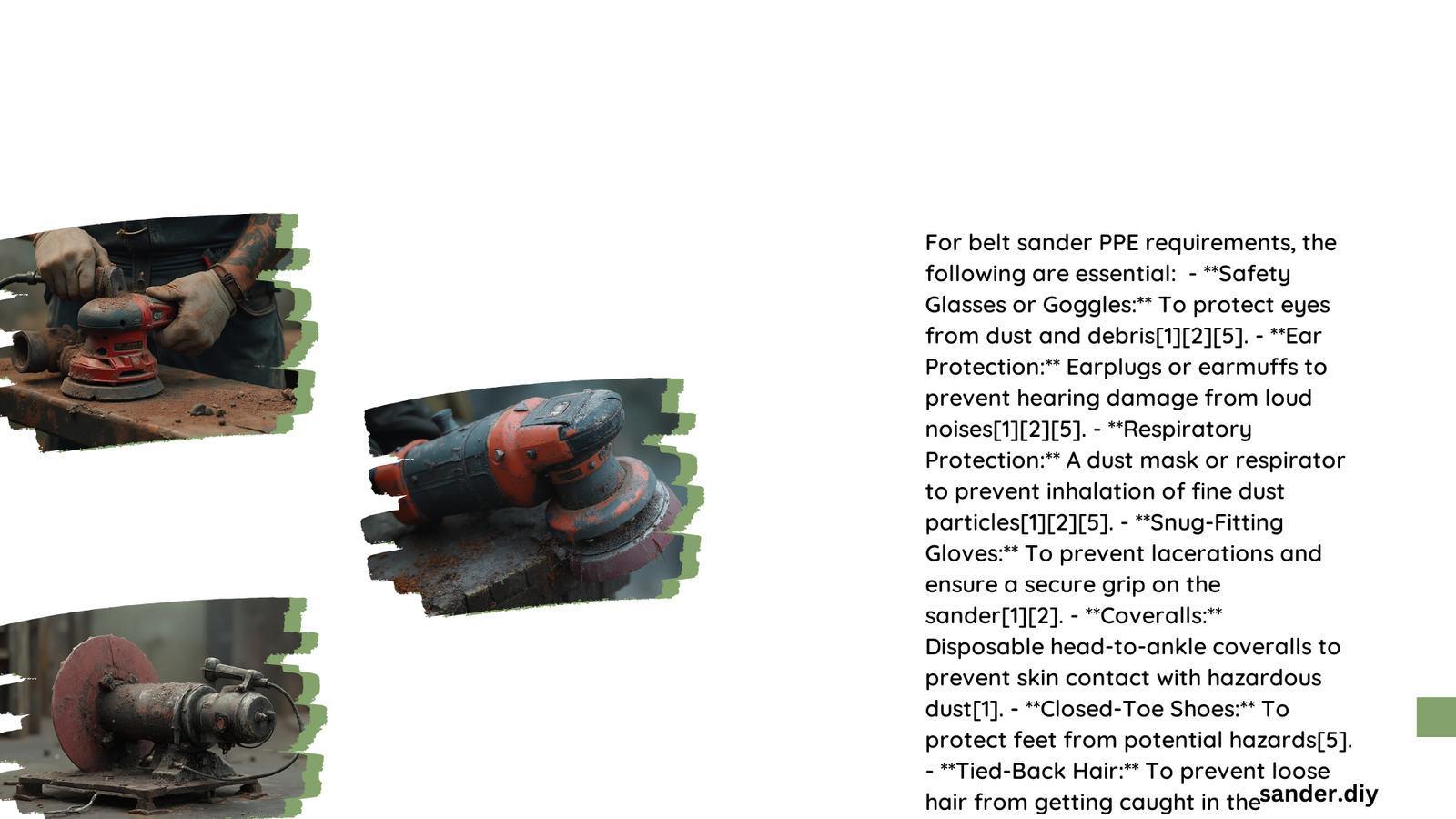Belt sanders generate significant dust, noise, and potential hazards that demand comprehensive personal protective equipment (PPE). Woodworkers and professionals must understand specific safety requirements to protect themselves from potential eye injuries, respiratory risks, hearing damage, and hand-related accidents during sanding operations. Proper PPE selection involves meeting industry standards, understanding specific protection levels, and choosing equipment that provides maximum safety and comfort.
What Are the Critical Safety Goggles Requirements?
Safety goggles represent the first line of defense against potential eye injuries during belt sander operations. Key considerations include:
- Impact Resistance Standards:
- Must meet ANSI Z87.1 certification
- Polycarbonate lens material recommended
- Side shield protection essential
Recommended Goggle Features
| Feature | Specification | Importance |
|---|---|---|
| Lens Material | Polycarbonate | High Impact Resistance |
| UV Protection | 99.9% Block | Eye Health |
| Anti-Fog Coating | Recommended | Clear Vision |
How Should Dust Masks Protect Respiratory Systems?

Respiratory protection is crucial when operating belt sanders due to significant dust generation. Recommended dust mask specifications include:
- Filtration Efficiency
- Minimum N95 rating
- Filters 95% of airborne particles
-
Tight facial seal critical
-
Fit Testing Protocols
- Professional fit testing recommended
- Ensure proper mask seal
- Individual facial structure considerations
What Ear Protection Strategies Minimize Hearing Damage?
Belt sanders produce substantial noise levels requiring comprehensive hearing protection:
- Noise Reduction Rating (NRR)
- Recommended 25-30 dB reduction
- Earmuffs preferred over earplugs
- Consistent noise attenuation important
Which Glove Characteristics Ensure Hand Safety?
Hand protection demands specialized considerations:
- Cut Resistance
- ANSI/ISEA 105 standard compliance
- Snug-fitting design
- Material: Leather or synthetic fabrics
Glove Selection Criteria
- Avoid loose-fitting designs
- Choose materials preventing sander entanglement
- Select appropriate cut resistance level
What Are Estimated PPE Investment Costs?
Average Price Ranges
- Safety Goggles: $10 – $50
- Dust Masks: $1 – $100 (disposable to professional)
- Ear Protection: $5 – $100
- Gloves: $10 – $50 per pair
Additional Safety Recommendations
- Regular PPE inspection
- Replace damaged equipment immediately
- Train workers on proper PPE usage
- Maintain equipment cleaning protocols
Professional Insights
Experienced woodworkers emphasize that investing in high-quality PPE is significantly more cost-effective than potential medical expenses from workplace injuries.
Conclusion
Comprehensive belt sander PPE requirements demand meticulous attention to eye, respiratory, hearing, and hand protection. By understanding and implementing these guidelines, professionals can create safer working environments.
